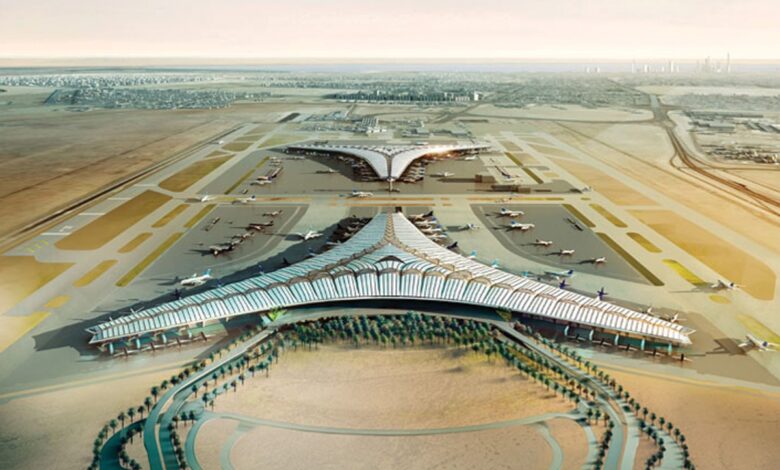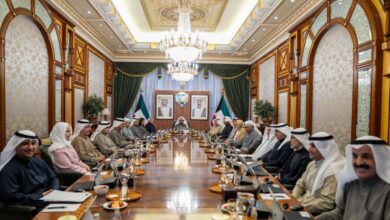Kuwait’s New Airport faces setback as international airlines suspend flights

The cancellation of foreign flights will significantly reduce the number of tourists visiting Kuwait, negatively impacting the tourism sector. European airlines, offering lower prices, better timings, and broader destinations compared to some Gulf carriers, worsen the issue. Authorities need to take immediate measures to address these challenges and restore normal air traffic.
The reduced competition leads to higher prices, which could harm citizens, eventually allowing one party to control prices, resulting in a situation of monopoly.
The new airport will also face significant setbacks, as it would be unreasonable for it to operate solely with local airlines and Gulf carriers. Also Kuwait Airways does not offer flights to many cities where Kuwaiti students are studying.
On the other hand, most Gulf airlines have partnerships with international carriers, allowing travelers to reach destinations not covered by their direct flights.
A solution proposed is to address the high costs for airlines and improve economic feasibility, highlighting factors that have contributed to increased flight costs, reduced profitability, and unprofitable routes for European and foreign airlines. These obstacles need to be studied and find solutions to ensure the new Kuwait airport becomes a regional hub that attracts more destinations.
Other Attractions
Former Chairman of the Board of Directors of Kuwait Airways, Captain Ali Al-Dukhan, called for finding a solution to the issue of British Airways and other European airlines removing Kuwait Airport from their flight schedules after decades of operation. He emphasized the importance of addressing this challenge and attracting airlines back, especially as Kuwait is on the verge of opening the new T2 International Airport.
Capt. Al-Dukhan explained that the goal of attracting European airlines to Kuwait is to make the new T2 International Airport, which cost the state approximately $5 billion, a global, rather than a local, hub. He pointed out that several European airlines had canceled their flights to Kuwait due to economic feasibility concerns, particularly due to intense competition and price-cutting by Gulf and Turkish airlines offering extended routes under the ‘fifth freedom’ concept.
Moreover, Capt. Al-Dukhan stated that British Airways was the first to discontinue flights to Kuwait, followed by Dutch and German airlines. He emphasized that this move would not benefit travelers from Kuwait Airport and would also negatively impact the new Kuwait International Airport, which is nearing completion and official opening.
Capt. Al-Dukhan stated that with less competition, prices will rise, potentially harming citizens, as it could lead to a monopoly. He emphasized that the issue goes beyond just the traveler and affects the new airport, which will suffer as a result.
Furthermore, Capt. Al-Dukhan explained that it would be unreasonable to open the new airport and have it used only by Kuwait Airways and Gulf airlines, as this would render the airport ineffective.
Capt. Al-Dukhan emphasized the need to attract more airlines to Kuwait Airport, especially with the upcoming opening of the new T2 passenger terminal. He urged the responsible authorities, including civil aviation, to investigate the reasons behind the suspension of airlines and work to prevent further cancellations in the future.
Regarding high costs for airlines and economic feasibility, Capt. Al-Dukhan emphasized the need to resolve the underlying issues causing these challenges. He pointed out that several factors contribute to the increased flight costs and low profitability for European and foreign companies.
Capt. Al-Dukhan called for a thorough study of these obstacles and the development of solutions to ensure that the new airport becomes a regional hub, attracting more destinations.
Importantly, Capt. Al-Dukhan stressed that Kuwait Airport’s fees and services are competitive with the world’s top airports. However, he pointed out that aircraft fuel prices are controlled by a single company, which sets inflated prices globally.
Slowdown and Gravity
Saad Al-Adwani, CEO of the Middle East Federation of Travel and Tourism Agents, emphasized that the aviation sector plays a crucial role in driving economic growth, as it is closely tied to tourism, trade, and investment.
Hence, Al-Adwani explained that disruptions in the aviation sector, such as the cancellation of flights or the suspension of foreign airlines’ services to Kuwait, can have far-reaching effects on various economic sectors, impacting tourism, trade, and investment.
Al-Adwani emphasized that the cancellation of flights to Kuwait by several European airlines, including Dutch KLM, German Lufthansa, and British Airways, has notably impacted the cost and convenience of flight bookings for Kuwaiti students studying abroad.
Al-Adwani highlighted that the cancellation of foreign flights will lead to a decrease in the number of tourists visiting Kuwait, which will negatively impact the tourism sector, a key contributor to the country’s economy and domestic tourism stimulation.
About future slowdown, Al-Adwani noted that the suspension of flights could also lead to a decline in commercial activity, as Kuwait heavily relies on airport connections for the movement of goods. This slowdown in trade could delay the arrival of goods and reduce Kuwait’s appeal as a destination for investment and tourism, making it harder for investors to access the country and explore opportunities.
Al-Adwani explained that the suspension of flights could have a significant impact on students studying abroad, as they may face higher ticket prices due to the limited number of available airlines.
To address this, Al-Adwani suggested providing additional financial support to students to cover the increased costs, which would put additional pressure on the budget, especially as the cancellation of foreign airlines leads to higher ticket prices.
Al-Adwani pointed out that the reduction in alternative routes could result in higher prices, especially if there are not enough options to replace the cancelled flights. This could lead to significant price fluctuations, particularly on high-demand routes, as ticket prices rise due to increased demand and fall on routes with less demand.
Furthermore, Al-Adwani highlighted that the reduction in alternative routes could drive up ticket prices if there aren’t enough options to replace the cancelled flights, particularly on high-demand routes.
This would lead to price fluctuations due to increased demand for some flights and decreased demand for others. He also noted that students may struggle to secure tickets, and other travelers, particularly those on medical trips, could face difficulties finding available seats, especially during peak travel seasons.
Unhealthy Competitions
Abdulrahman Al-Kharafi, a member of the Federation of Tourism and Travel Offices, stated that the departure of European airlines from Kuwait and the suspension of their flights will create challenges in the upcoming travel season, and the relevant authorities must address this issue.
Al-Kharafi stated that the decision by British Airways, along with Dutch and German airlines, to cancel Kuwait Airport from their flight schedules starting next March, after decades of operating in Kuwait, is a troubling move with several negative consequences.
On a significant note, Al-Kharafi pointed out that local airlines will not be able to cover all flight routes, especially with the upcoming opening of the new international airport, which has cost the state billions of dollars. He warned that the exit of European airlines will affect the aviation market and lead to a crisis during the upcoming summer, resulting in insufficient flight coverage for the travel season.
Al-Kharafi stated that the exit of well-established companies from the market is a significant loss for the state, as these companies have been key players in the aviation and travel sector for decades.
Regarding accountability, Al-Kharafi emphasized that officials in Civil Aviation must take responsibility, engage with airline representatives, and develop a strategy to bring back the suspended flights.
Al-Kharafi suggested that coordination with competing airlines is essential to align views and ensure reasonable prices. He also stressed that for a country’s economy to thrive and benefit its citizens; it must support large companies by offering incentives, reducing fees, increasing flights, and addressing fuel costs.
Al-Kharafi emphasized that protecting competition is crucial and called for finding a solution to the price-cutting issue in the ticket market. He pointed out that some companies have deliberately lowered prices due to state support.
However, Al-Kharafi explained that the state support for certain airlines has reduced the economic costs for others, making the market unprofitable and leading to their exit. He emphasized the need for a fair distribution of routes, urging coordination between airlines on destinations to avoid competition that could harm existing carriers.
Al-Kharafi highlighted that citizens will face difficulties due to the limited options from Kuwait International Airport, forcing them to accept higher ticket prices. He also noted the negative impact on students studying abroad, who may struggle with fewer alternatives.
Al-Kharafi explained that some companies have exited the Kuwaiti market, while others have reduced their flight numbers, due to competing companies lowering prices below the cost of operations, leading to unfair competition.
Source: Al Jarida












